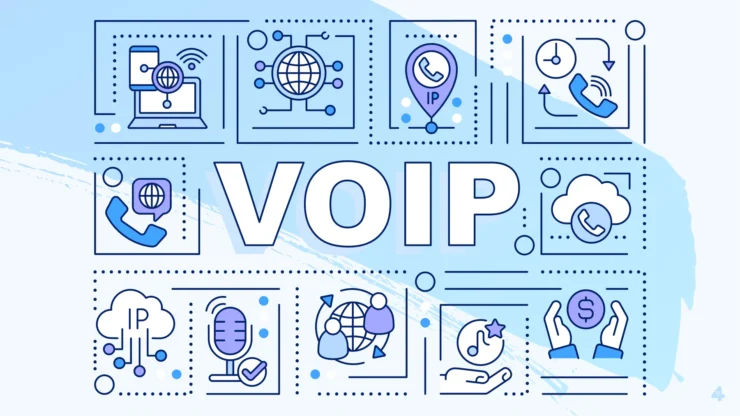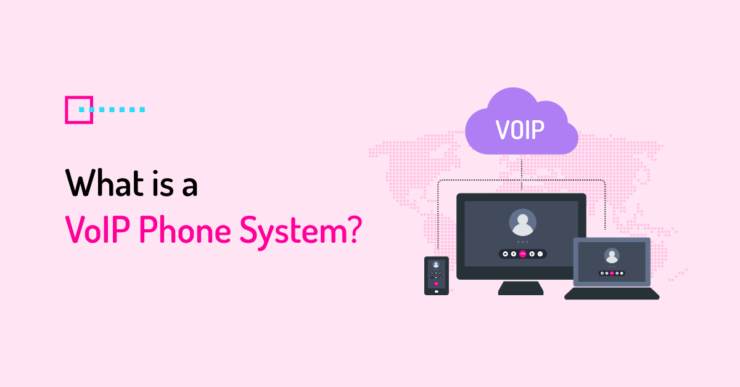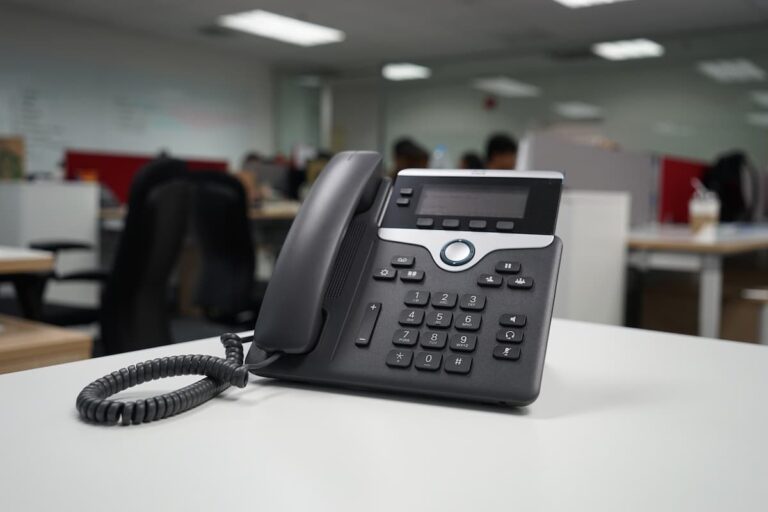Alright, let’s talk phone systems—but not the dusty old ones that make you want to smash the receiver when the bill comes in. Nope, we’re talking about VoIP, or Voice over Internet Protocol if we’re not into acronyms.
This little gem uses the internet to make calls, skipping the archaic witchcraft of traditional phone lines. Let’s break down why VoIP is the smarter choice, especially when it comes to saving some serious cash.
VoIP’s Evolution

Back in the 1970s, the big brains at the US Department of Defense started playing around with sending voice data over the internet.
Fast forward a few decades, and VoIP isn’t just a nifty project—it’s a major player in the communication game. Thanks to relentless improvements, it’s now a go-to for everyone from your tech-savvy aunt to giant corporations.
To get a better understanding of how VoIP is transforming business communications, integrating phone services with other digital communication methods, check out the insights at mation.com.
Why Circuit Switching is So Last Century
Remember traditional phones? Those relics use something called circuit switching—basically hogging a single pathway for the entire duration of a call. VoIP, on the other hand, is like your internet traffic: it uses packet switching. Voice data is broken up into little packets, sent over the web, and reassembled on the other side. This means it can sneak through the fastest routes available, dodging internet traffic jams.
Cost Comparison
- Old School Phones: Think monopolistic vibes and pricey upkeep. You’re not just paying for calls; you’re maintaining the telephonic equivalent of a vintage car.
- VoIP Magic: Costs sliced by 40-80%. Why? No need for heavy metal—physical lines, I mean—and less gear means fewer things that can break.
What’s on the VoIP Menu?

For the Regular Joes and Janes
- Consumer VoIP: Ever used Skype to call your buddy across the globe? That’s VoIP making your life easier without even needing a traditional phone.
For the Tweakers and Tinkerers
- Hybrid Solutions: Mixing old and new, like making calls from your PC to a landline using snazzy adapters.
For the Big Leagues
- Corporate Power Moves: Firms like IDT aren’t just giving you calls—they’re dishing out full-blown communication strategies that could make a grown CFO weep with joy.
The Perks of Going Digital
With traditional setups, you’d need a whole room for the PBX system (that’s the private branch exchange, telecom speak for the office phone system). VoIP? Just plug into the internet. This minimalist setup lets you hop on a call from wherever, on whatever gadget you’ve got in hand—smartphone, laptop, you name it.
The Unified Communications Buffet
VoIP isn’t a one-trick pony. It’s more like a Swiss army knife for communication:
- Emails and IMs: Check and double-check.
- Video Calls and Multimedia Conferencing: Perfect for when you need to see your team’s faces (or make sure they’re actually awake).
- Agile Working: Got a team spread across different time zones? No problem. VoIP’s flexibility means everyone’s just a click away from syncing up.
Why These Benefits Aren’t Just Cool But Crucial
- Customer Acquisition: Impress prospects with seamless communication.
- Staff Morale and Productivity: Happy teams are productive teams, and nothing says ‘happy’ like tools that actually work.
The Bright Future of VoIP

The future’s looking bright for VoIP, and not just because it’s easy on the wallet. Its ability to blend with various technologies and adapt to ever-changing digital landscapes makes it a smart bet for anyone thinking long-term.
Why We’re Betting on VoIP
- Cost-Effectiveness: It’s cheap and gets cheaper.
- Multifunctionality: It grows with your needs, from simple calls to complex corporate communications.

